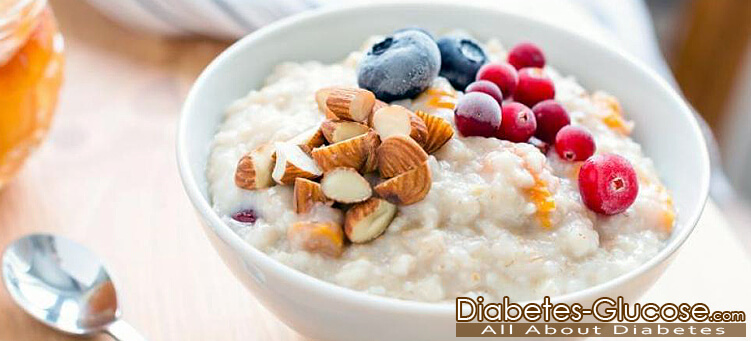Coffee’s Effect on Diabetes
Coffee and diabetes
Highlights
- For people without diabetes, coffee may help reduce the risk of developing diabetes.
- Caffeine has been shown in the short term to increase both glucose and insulin levels. Because of this, people with diabetes should be cautious when consuming coffee.
- Once sweetener is added to coffee, it removes the benefits of diabetes prevention. It can actually increase your risk of developing diabetes.
Coffee was once condemned as being bad for your health. However, there’s growing evidence that it may protect against certain kinds of cancers, liver disease, depression, and Parkinson’s disease.
There’s also compelling research that increasing your coffee intake may actually lower your risk for developing type 2 diabetes. This is good news for those of us who can’t face the day until we get in our cup of java. However, for those who already have type 2 diabetes, coffee could have adverse effects.
Whether you’re trying to lower your risk, you have diabetes, or you just can’t go without your cup of joe, learn about coffee’s effects on diabetes.
What is diabetes?
According to the Mayo Clinic, diabetes is a disease (or group of diseases) that affects how your body processes blood glucose (sugar). Blood glucose is important because it is what fuels your brain and gives energy to your muscles and tissues. If you have diabetes, that means that you have too much blood glucose circulating in your body and it can cause serious health concerns. There are a number of different factors that can cause diabetes.
Chronic diabetes types are type 1 and type 2. Other types include gestational diabetes, which occurs during pregnancy but tends to go away after birth. Another is prediabetes, which means your blood glucose levels are higher than usual but not as high as would be considered diabetes.
Some signs and symptoms of diabetes include increased thirst, unexplained loss of weight, fatigue, irritability, and more. If you think you might have some of these symptoms, it is important to talk to your doctor.
Coffee as possible prevention of diabetes
The health benefits of coffee for diabetes differs from case to case. A study published in the Diabetologia is starting to generate discussion.
Researchers at Harvard tracked over 100,000 people for about 20 years. They concentrated on a four-year period. They found that people who increased their coffee intake by over one cup per day had an 11 percent lower risk of developing type 2 diabetes.
However, people who reduced their coffee intake by one cup per day increased their risk of developing diabetes by 17 percent. There was no difference in those drinking tea.
It is not clear why coffee has such an impact on developing diabetes. Caffeine may not be responsible. In fact, caffeine has been shown in the short term to increase both glucose and insulin levels.
Coffee’s effect on glucose and insulin
A 2004 study published in Diabetes Care showed that a dose of caffeine before eating resulted in higher post-meal blood glucose in people with type 2 diabetes. It also showed an increase in insulin resistance. So, while it could be beneficial for protecting people against diabetes, it may pose dangers to people who already have type 2 diabetes.
There are a lot of ingredients in coffee other than caffeine. Some of them may be responsible for that protective effect seen in the 2014 study. Also, drinking caffeinated coffee over a long period of time may change its effect on glucose and insulin sensitivity. Tolerance from long-term consumption may be what causes a protective effect.
Another 2004 study looked at a “mid-range” effect on people without diabetes who had been either drinking 1 liter of coffee at day, or who abstained for a period of four weeks. At the end of the study, those who consumed more coffee had higher amounts of insulin in their blood. This was the case even when fasting.
If you have type 2 diabetes, the body tries to make more insulin in order to remove sugar from the blood stream. The “tolerance” effect seen in long-term coffee consumption takes a lot longer than four weeks to develop.
There is a clear difference in how people with diabetes and people without diabetes respond to coffee and caffeine. A Duke University study had habitual coffee drinkers with type 2 diabetes continuously monitor their blood sugar while doing daily activities.
During the day, it was shown that right after they drank coffee, their blood sugar would soar. Blood sugar was higher on days that they drank coffee than it was on days they didn’t. Coffee might be protective in those who haven’t developed diabetes, but caffeine can be dangerous if you already have type 2.
Other health benefits of coffee
There are other health benefits of drinking coffee. According to the Mayo Clinic, past studies tended to not consider other risk factors of the coffee drinkers when performing the study. However, new studies with controlled risk factors show coffee’s other benefits. These include protection against:
- Parkinson’s disease
- liver disease (including liver cancer)
- gout
- Alzheimer’s disease
- gallstones
- type 2 diabetes
These studies have also shown that coffee seems to decrease depression risk and increase ability to focus and think clearly.
Coffee with added ingredients
If you do not have diabetes but are concerned about developing it, be careful before increasing your coffee intake. There may be a positive effect from coffee in its pure form. However, the benefits are not the same for coffee drinks with added sweeteners or dairy products.
Daily diabetes tip
- Coffee may be more popular than ever, but drinking it on a regular basis isn’t the best way to manage diabetes — even if (believe it or not) there’s growing evidence that it could help prevent diabetes.
Creamy, sugary drinks found at cafe chains are loaded with unhealthy carbs. They are very high in calories. The impact of the sugar and fat in a lot of coffee and espresso drinks can outweigh the good from any protective effects of the coffee.
The same can be said about sugar sweetened and even artificially sweetened coffee and other beverages. Once sweetener is added, it removes the benefits of coffee in the fight against type 2 diabetes. It can actually increase your risk of developing diabetes.
Having high saturated fat, high carb coffee drinks on a regular basis can add to insulin resistance. It can eventually contribute to type 2 diabetes. Most big coffee chains offer drink options with fewer carbs and fat. “Skinny” coffee drinks allow you the morning wakeup or afternoon pick-me-up without the sugar rush.
Risks and warnings
Even for healthy individuals, the caffeine in coffee can have some side effects.
Coffee’s common side effects include:
- headaches
- restlessness
- anxiety
As with most everything, moderation is the key in coffee consumption. However, even with moderate consumption, coffee does have risks that you should discuss with your doctor. These risks and warnings include:
- increase in cholesterol with unfiltered or espresso type coffees
- adolescents should have less than 100 mg of caffeine each day (includes all caffeinated drinks, not just coffee)
- young children should avoid caffeinated drinks
- increased risk of heartburn
- adding too much sweetener or cream can increase your risk of diabetes and becoming overweight
- elevated blood glucose levels after a meal
Takeaway
No food or supplement offers total protection against type 2 diabetes. If you have prediabetes, losing weight and exercising might be the best way to reduce your risk. Taking up drinking coffee in order to stave off diabetes will not guarantee you a good result.
Try reducing the amount of sugar or fat you drink with your coffee.
Talk with your doctor about diet and exercise options and about the effects that drinking coffee might have.
Source: healthline.com




Diabetes is a life-long disease; It is possible to keep the disease in full control if proper action is taken. Therefore, for the treatment of this disease, patients need diabetes as well as education, as well as the relatives of the patient should have knowledge about this disease. Because there is no alternative to education.
CINNAMON IS GOOD FOR DIABETES